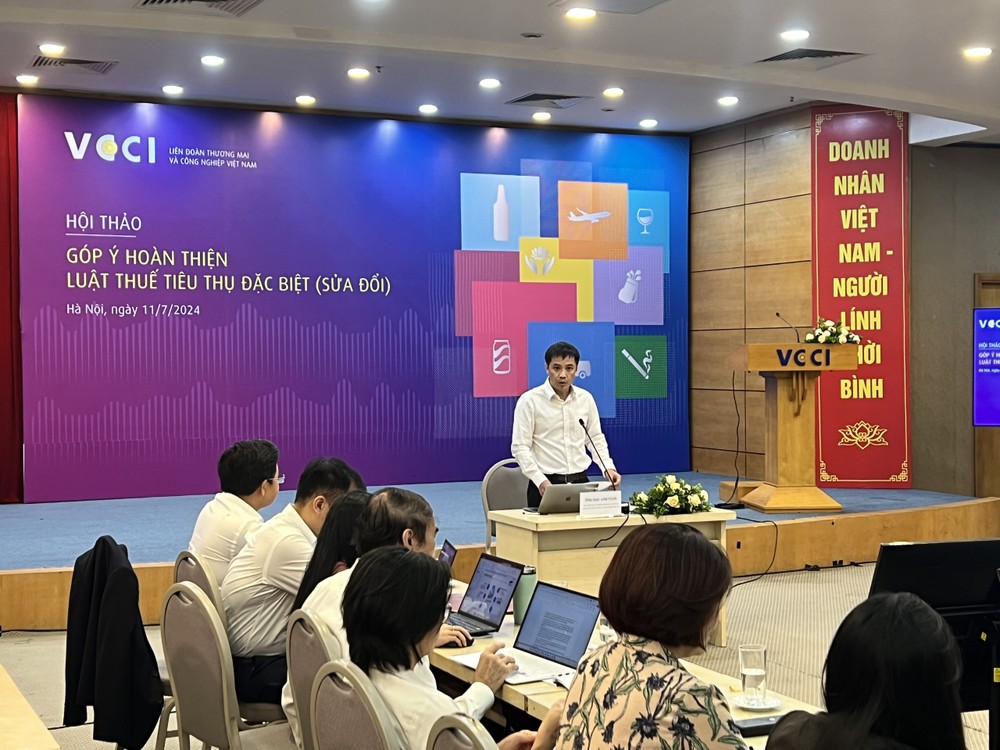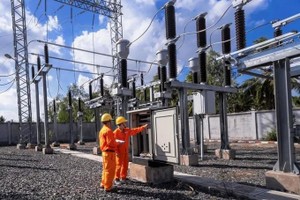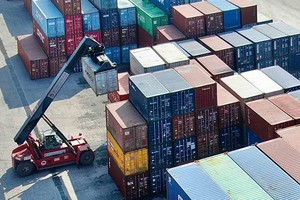
Speaking at the seminar, Ms. Chu Thi Van Anh, Vice Chairwoman cum General Secretary of the Vietnam Beer, Alcohol, and Beverage Association (VBA), stated that the draft of the Special Consumption Tax Law still contains provisions that are not entirely appropriate. For instance, the draft's regulations on imposing special consumption tax on sugary drinks are unclear, as sugary beverages are not the only source of sugar and calories.
Furthermore, there are many causes of overweight and obesity among people. Imposing a special consumption tax on sugary drinks not only significantly impacts the beverage industry but also affects supporting industries such as sugarcane, packaging, retail, and logistics in Vietnam.
Regarding alcoholic beverages, a representative of the VBA highlighted that in 2023, there was a significant downturn in sales for companies involved in manufacturing and distributing alcoholic drinks, especially in the beer and liquor sectors. Therefore, implementing a special consumption tax at this juncture would further burden beverage companies and hinder their recovery efforts.
Furthermore, the information provided about the proposed tax hike and its impact assessment primarily focuses on raising alcohol prices by 10 percent or 20 percent annually, without comprehensively evaluating broader impacts such as reduced consumption, public health objectives, budget implications, and effects on businesses.
Consequently, the VBA suggests postponing the effective date of the amended Special Consumption Tax Law to 2027 instead of the initially planned 2025. They also propose that the drafting committee consider reducing the rate of tax increases and extending the implementation timeline in a balanced manner to mitigate market disruptions, stabilize market conditions, and facilitate business adaptation.
In agreement, Mr. Nguyen Van Phung, a tax expert and member of the Vietnam Association of Accountants and Auditors, argued that imposing a special consumption tax on sugary drinks does not help achieve the goal of increasing the national budget. Instead, it negatively impacts the beverage industry and its related supporting sectors.
According to Phung, businesses currently face a heavy burden of various taxes and expenses, such as value-added tax, import-export duties, recycling fees, waste treatment costs, expenses related to greenhouse gas inventory, emissions fees, and upcoming wastewater fees. Therefore, he advises authorities to carefully consider the timeline for implementing increases in special consumption taxes to avoid policy shocks that could harm businesses.
Contributing feedback to the draft, most experts believe that regulatory authorities should carefully consider the timeline for increasing special consumption taxes to avoid placing undue financial burdens on businesses while ensuring transparency, fairness, and reasonableness.
Previously, the draft amendment of the Special Consumption Tax Law was reviewed and discussed at the 15th National Assembly (NA)'s 7th session in May 2024. According to the roadmap, the government plans to present the draft for a second round of opinions during the 8th session in October 2024 and aim for its approval during the 9th session in May 2025.
























